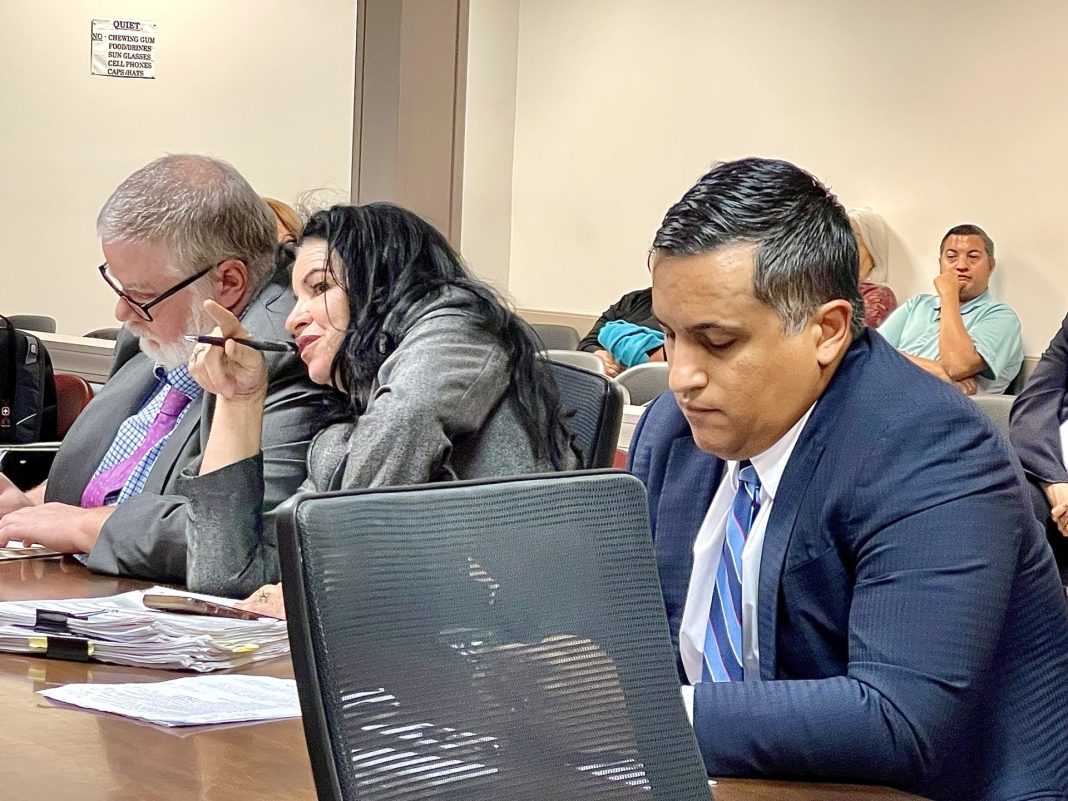|
Only have a minute? Listen instead
Getting your Trinity Audio player ready...
|
EDINBURG — “This is probably the most egregious abuse of a right to vote that I’ve ever heard of. Someone being forced to vote. And the so-called ‘assisters’ casting his vote. If I’m not mistaken, that’s a criminal offense.”
Those were the words of a shocked Jose Manuel Bañales after hearing directly from an intellectually disabled man as testimony resumed Monday afternoon in the trial challenging the results of a May 28 Democratic Party primary runoff for the Hidalgo County Precinct 3, Place 1 justice of the peace seat.
“I will find, based on the evidence — clear and convincing evidence — that he cast the vote for Judge Treviño,” Bañales further said, thus disqualifying and striking down the 25-year-old man’s vote from Treviño’s runoff win.
With that, the man’s disqualified vote became one of dozens that Bañales has disqualified in the election contest — the majority of which the judge has also found had been cast for Sonia Treviño, the incumbent who won the May runoff by just 31 votes.
But last month, her opponent, Ramon Segovia, challenged the results of Treviño’s narrow election victory, alleging that the incumbent had cheated her way to a win through the ballots of scores of voters who wrongfully received assistance at the polls.
The trial initially got underway on July 15, but hit several hurdles between then and Monday.
Just four days into the trial, Bañales disqualified Treviño’s lead attorney, Rick Salinas, of Mission, after he made himself a potential witness while cross examining Segovia.
Bañales ruled that Salinas’ admission that he overheard a conversation Segovia had had with candidates running in other races made him not only a potential witness, but violated the attorney’s professional code of conduct.
The following Monday, as the trial continued, testimony was cut short when the 13th Court of Appeals stayed the proceedings while they deliberated Treviño’s plea to have her attorney reinstated.
The appeals court came to a decision at the end of last week, saying in a 15–page opinion signed by Judge Jaime Tijerina that Bañales had overstepped his authority in removing Salinas from the case.
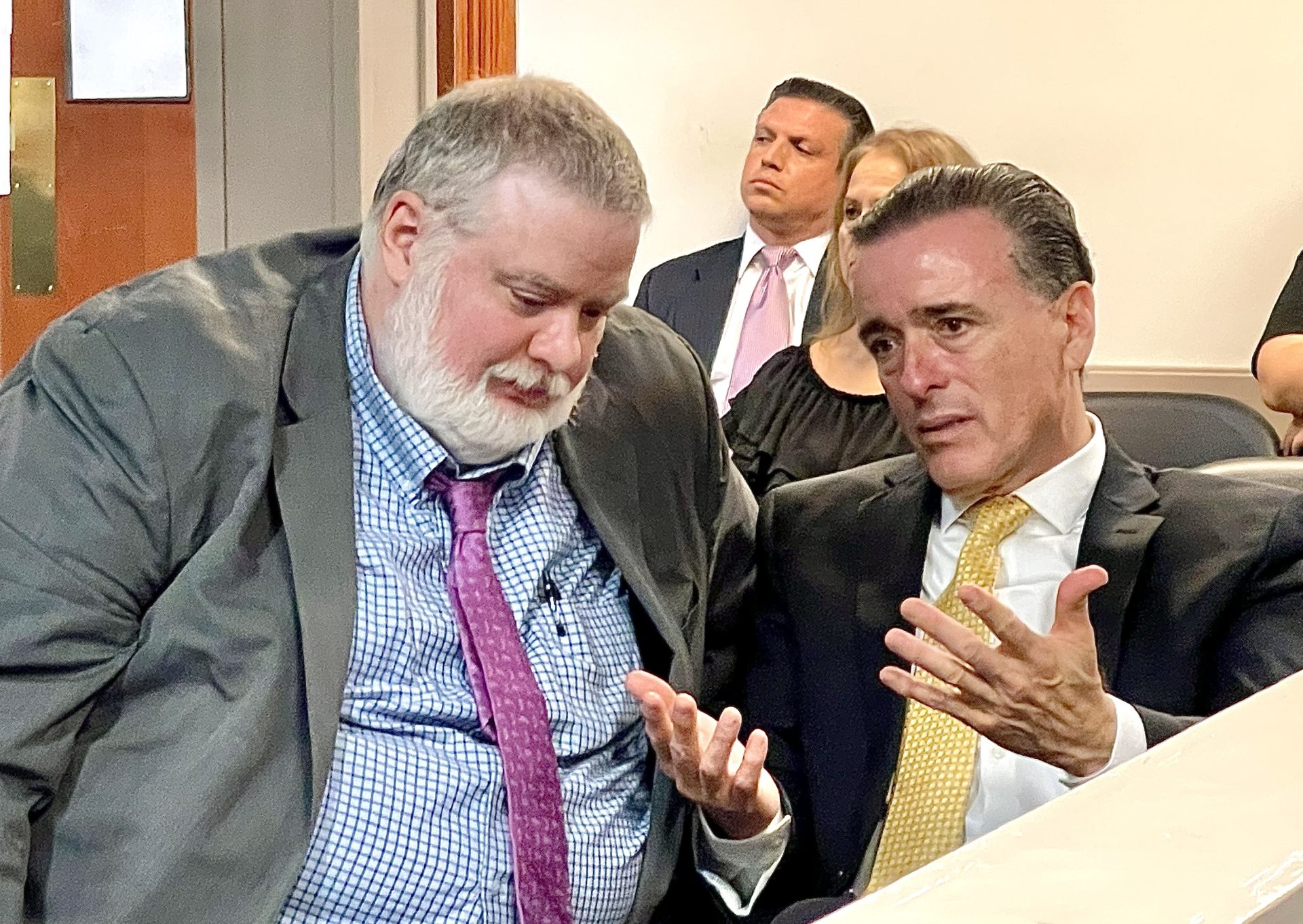
The appeals court directed Bañales to reinstate Salinas.
And so, when court resumed just after lunchtime on Monday, there Salinas sat at the table with his client and two other attorneys, Efrain Molina, of Edinburg, and Martin Golando, of San Antonio.
But even with the appeals court on his side, Salinas remained largely silent through the testimony of six witnesses.
The one time he did try to speak — to make an objection — Bañales reminded him of his preference that only one attorney per party participate.
During a brief recess, Salinas expressed his frustrations over the judge repeatedly disqualifying votes from his client’s tally.
On the other side of the aisle, Gilberto Hinojosa, the Texas Democratic Party chair who is no stranger to litigating election contests, nonetheless said this trial — and the facts that it has revealed — is like nothing he has seen in his 40-year career.
“I’m tired,” Hinojosa said during the recess.
Whether the judge is also tired remains unclear. But one thing was readily apparent — his shock.
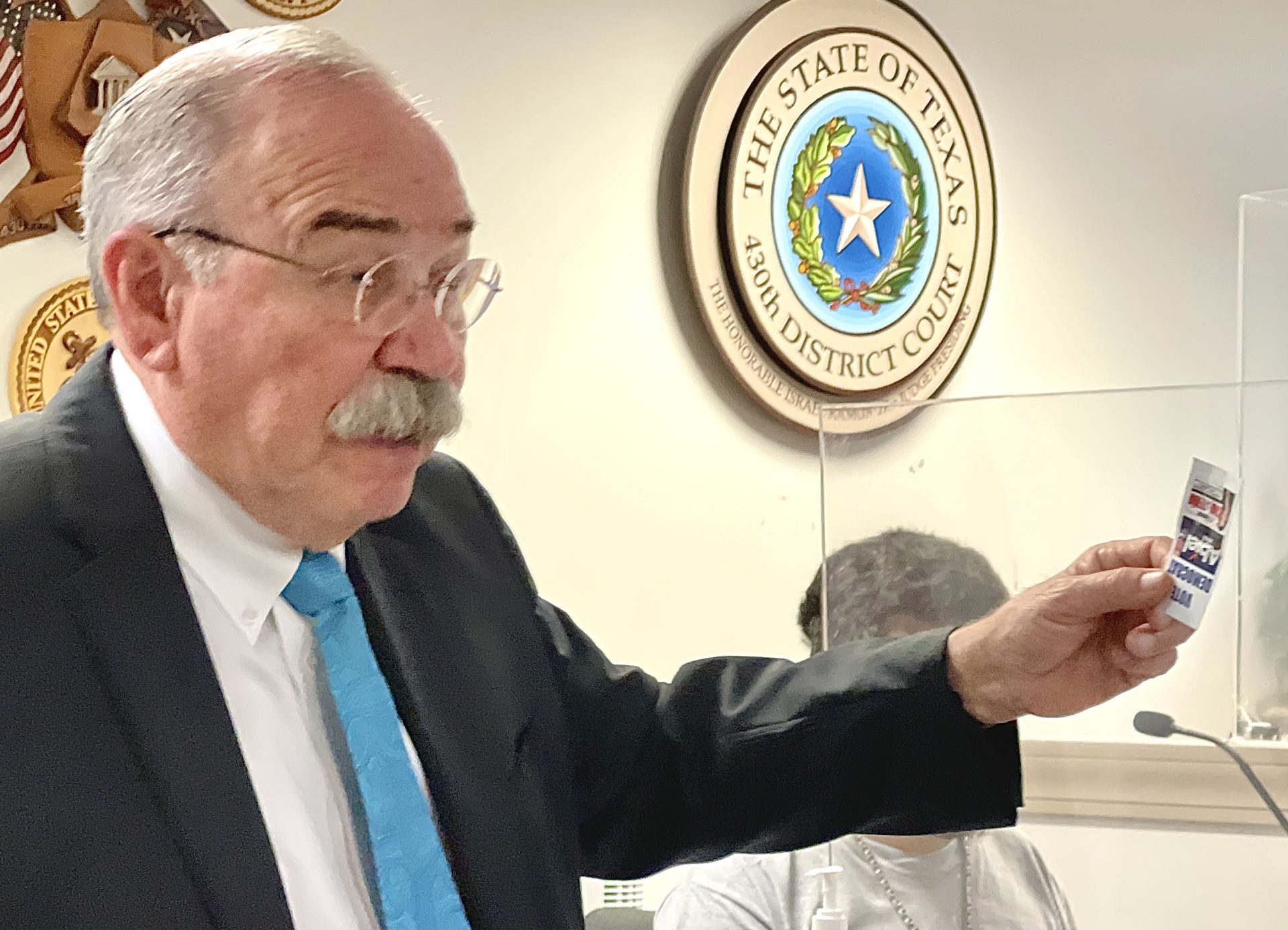
The judge sat aghast after the testimony of the intellectually disabled young man, who had recounted how a politiquera came to his adult daycare and forced him to go to the polls, even after he repeatedly tried to tell them no.
“They would offer me to, like, go vote, and I told them no, ‘cause I don’t want to ‘cause I don’t have my mom with me,” the man said in response to cross examination by Molina, one of the attorneys representing the incumbent.
“What did they do when you told them no?” Molina asked.
“They told me, no, pos, you still have to go vote or else you’re going to get in trouble with the law,” the young man replied.
Moments later, Hinojosa asked the judge for permission to call the man’s mother as a witness, even though she had not previously been on the witness list. The judge agreed.
The woman’s testimony served to further underline her son’s inability to vote.
Though in his 20s, the young man often has the mentality of a 3-year-old, she said. He can neither read nor write beyond his own name and certain “small words.” He relies upon her to make decisions, and is all too eager to please.
That latter characteristic was clearly evident as Hinojosa questioned him during direct examination. Though clearly nervous, the young man could be seen mimicking Hinojosa by chuckling softly anytime the attorney punctuated a question with a laugh of his own.
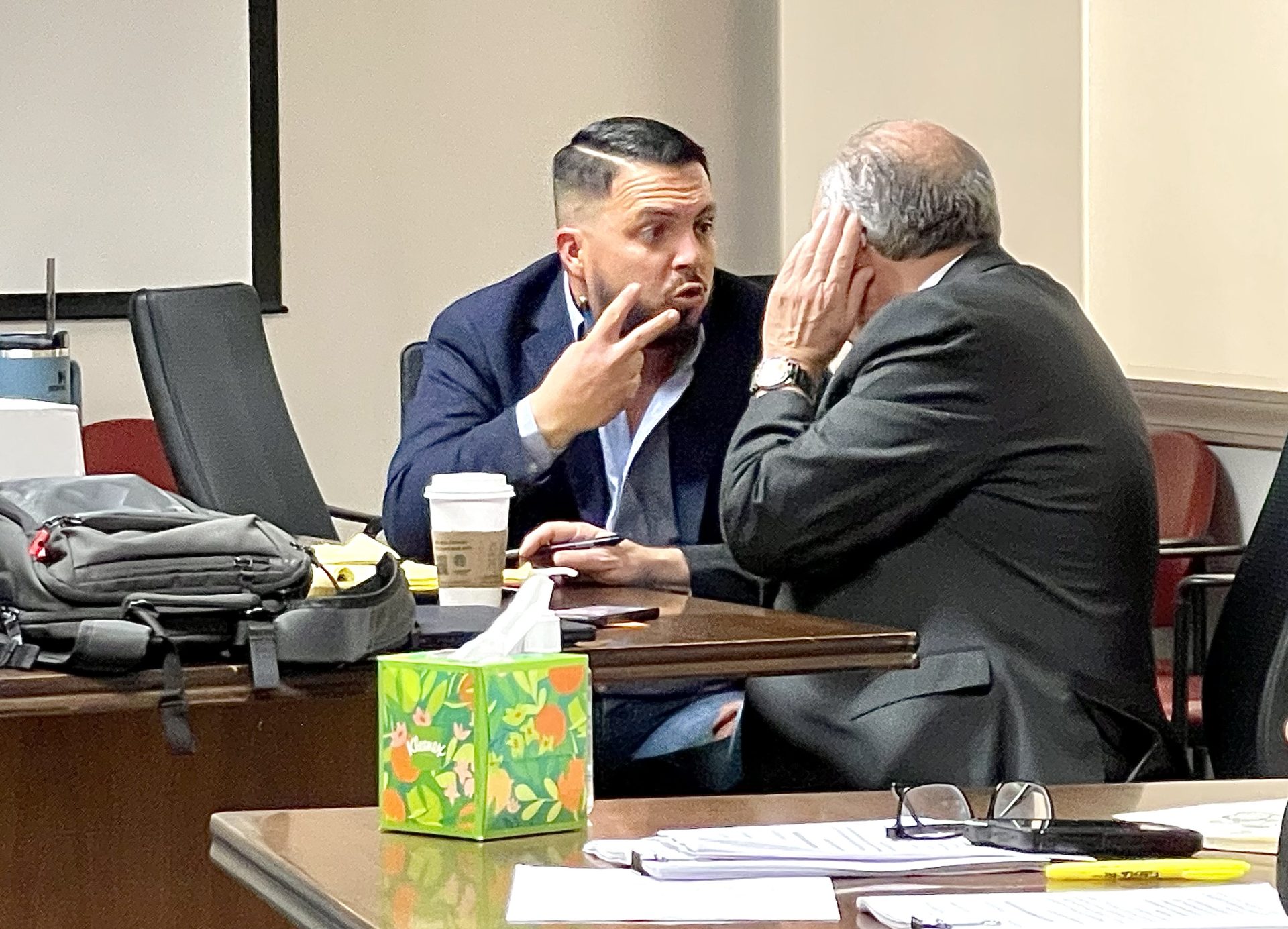
But it was during those questions that Hinojosa sussed out how a campaign worker for the Treviño campaign had given the young man a business card-sized push card.
Hinojosa held the card up in the air.
It depicted the names of two candidates for two different races: Treviño, and Abiel Flores, who lost the Democratic primary runoff for the 332nd state District Court.
Just before taking the stand Monday, the young man had tossed the card in a trashcan, saying he didn’t need it anymore, and that he never planned to vote again.
The woman who had given the young man the card and then “cast the vote for Judge Treviño” on the his behalf, as Hinojosa characterized it, was none other than Treviño’s own court clerk, Iliana Parras.
Ultimately, Bañales disqualified the votes of all five voters who testified Monday afternoon. And in each case, he found that the voter had cast their ballot for Treviño.
Among them was a man who was born in Mexico but became a naturalized citizen in 2012 — just in time to vote for Barack Obama’s reelection, he said with a note of pride in his voice.
The man wasn’t the only naturalized citizen whose ballot Bañales has disqualified thus far.
Another disqualified vote came from a man who testified about his functional illiteracy.
The other three voters whose ballots were disqualified all in some way or another knew members of the Treviño campaign.
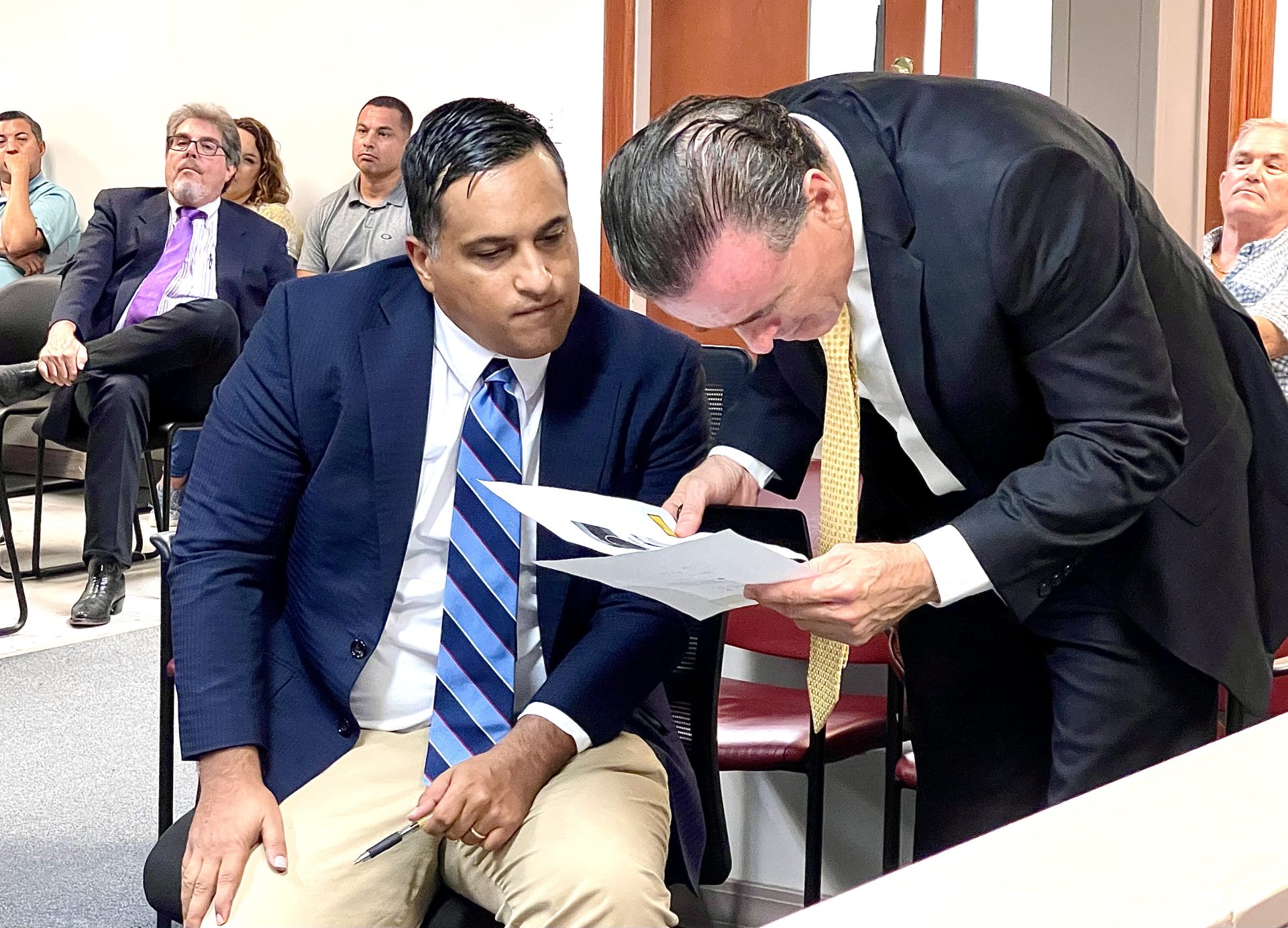
One young woman, a student at a medical vocational school, testified that she asked for assistance from a “regular” from the Stripes Store she works at.
Another was a young man who once went to school with two of Treviño’s children, and even played football with her son.
Those children — now adults — have played prominently in the trial so far.
Michael and Jacqueline Howell assisted nearly 70 voters in casting their ballots, according to the copies of oaths of assistance that have been obtained by Segovia’s legal team.
Another woman, named Angelica Garza, signed the oaths of assistance for another 72 voters, Hinojosa said.
But if assisting voters is wrong, then that’s just the “pot calling the kettle black,” according to Salinas.
Since the beginning of the trial, the attorney has insisted that Segovia is just as guilty of doing the things he has accused Treviño of doing.
“(Segovia) didn’t illegally assist enough in order to be able to make the win,” Salinas said after the first day of trial.
Speaking during the recess on Monday, Salinas said he has evidence that Segovia “hauled” at least 500 votes himself.
Hinojosa plans to wrap up his case in chief by Wednesday. Then it’ll be Salinas’ turn to put on evidence. He said he’ll try to call as many witnesses as the judge will allow.
PREVIOUS COVERAGE:
Testimony begins in Hidalgo County JP election contest trial

